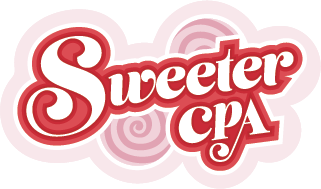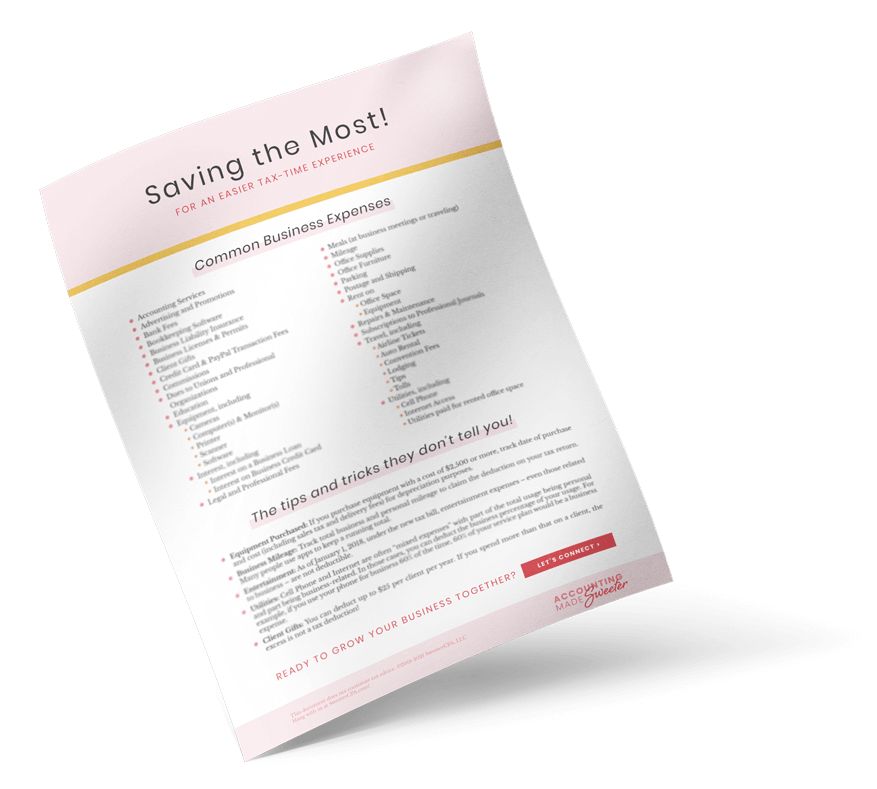Getting Started
First, any business needs its own bank account. Open a separate checking account at your bank and devote it solely to the income and expenses related to your business. This will make everything much easier when you prepare your taxes and also provide a good set-up should you want to adopt a different business structure (e.g., become an LLC or an S-Corporation) later on.
It is also very helpful to use accounting software to keep income and expenses categorized. Many options are available online (e.g., Quickbooks, Freshbooks, Wave). Using accounting software will save time and money when preparing your annual tax return(s) and will give you a better snapshot of how much you are spending on different areas of your business. By examining your financial records, you can make better decisions on what kinds of products to continue offering or where you need to look to cut expenses.
Quarterly Estimated Taxes
Most people are aware that they need to pay taxes annually on April 15th. However, as an entrepreneur, you may have quarterly tax requirements as well. If you’ve ever worked for someone else, you’ve seen money for taxes come out of your paycheck before you ever receive it. When you work for yourself, you are required to calculate how much you owe in taxes to the state and federal governments and send it in quarterly.
Estimated tax payments are due on April 15, June 15, September 15, and January 15. If these dates fall on a weekend or federal holiday (as is the case with the September payment for 2013), the due date is moved to the next business day.
Quarterly estimated taxes can be calculated on a Form 1040-ES. The instructions to that form walk you through what kinds of income and expense to include, how to calculate what you owe this quarter, and where to send your payment.
Sales Tax
If you sell tangible goods (i.e., things people can hold in their hands) you are required to collect sales tax. With online sales, your requirement as the seller is to collect sales tax if the sale takes place in a state where you have “nexus,” or a connection. For most, that means if you are selling an item to a person in the state where you live. If you have partners in other states or are outside of your home state for a show or fair, your requirements may change, so check with your tax adviser.
Before you start collecting sales tax, you must register with your state. Take a look at your state’s department of revenue website for instructions. Depending on how much sales tax you and your state estimate you will collect, you will be required to send in payments monthly, quarterly, or annually. When you initially register, the state will tell you how frequently to make payments. This frequency may be adjusted in the future as sales increase or decrease.
Forms 1099
As someone who is self-employed, you may get a Form 1099-MISC in the mail at the beginning of the year. Forms 1099-MISC report miscellaneous income. If someone pays you $600 or more for services during the year, they are required to send you a Form 1099-MISC to report that income.
Recently, there has been much discussion about 1099s from Payment Settlement Entities (PSEs). The most-popular PSE used by small businesses is Paypal. Beginning in January 2012, all PSEs are required to issue a Form 1099-K to merchants who received gross payments in excess of $20,000 and have more than 200 transactions during the year.
If you are keeping accurate records of your income, any Form 1099 you receive should only confirm what you already know. It’s not a good idea to rely on 1099s to tell you what you earned over the year as sometimes the parties responsible for sending them forget to do so. The IRS is cracking down on those people who don’t file Forms 1099 in time, but you are responsible for reporting all your income



